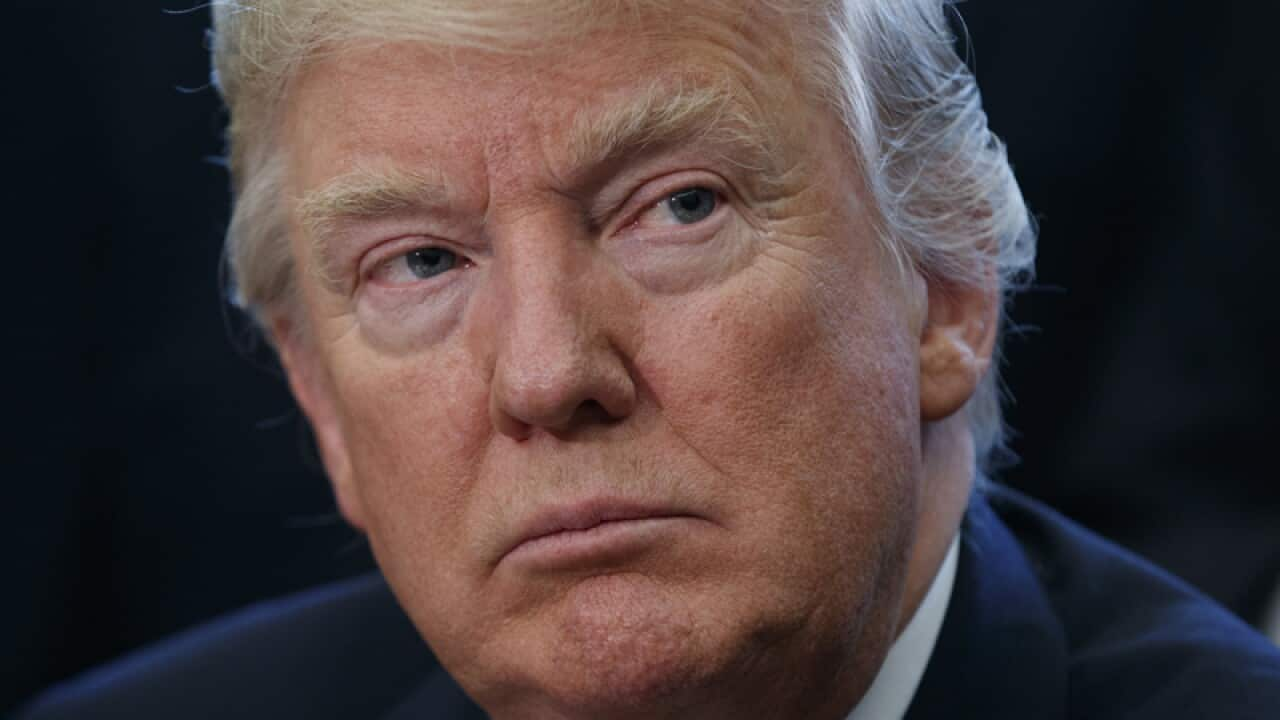United States president Donald Trump has been sending mixed messages over how he views NATO - the North Atlantic Treaty Organisation.
Just before taking office, Mr Trump gave a joint interview to 'The Times' of London and the German publication 'Bild' where he described NATO as obsolete.
MORE NEWS:

Trump to attend NATO summit
He said it was designed many, many years ago and countries were not paying what they are supposed to pay.
Then after taking the oath of office, Mr Trump appeared to change his position.
"We strongly support NATO. We only ask that all of the NATO members make their full and proper financial contributions to the NATO alliance, which many of them have not been doing. Many of them have not been even close. And they have to do that."
In February, his newly appointed defence secretary, James Mattis, travelled to Brussels for his first NATO meeting.
He, too, mentioned a shortcoming on payments.
"The alliance remains a fundamental bedrock for the United States and for all the transatlantic community, bonded as we are together. As President Trump has stated, he has strong support for NATO.
"It's a fair demand that all who benefit from the best defence in the world carry their proportionate share of the necessary cost to defend freedom, and we should never forget that, ultimately, it is freedom that we defend here at NATO."
Then, last weekend, during a joint news conference with German chancellor Angela Merkel, Mr Trump made another reference to the NATO payments.
"Many nations owe vast sums of money from past years, and it is very unfair to the United States. These nations must pay what they owe."
But a former US ambassador to NATO, Ivo Daalder, took issue with him on Twitter.
He said NATO countries do not owe the United States because that is not how the funding works.
Mr Daalder has told National Public Radio each NATO country decides how much it will spend on defence and how that money will be spent.
He said he is troubled by the notion Mr Trump seems to be pushing that the United States is somehow doing countries a favour for which it should be paid.
"The United States is in NATO not as a favour to Europeans but because it is in the vital interest of the United States. We fought two world wars and a long cold war in Europe in order to ensure that this was a continent that was whole, free and at peace. It is whole, free and at peace, in large part because of the commitment that the United States and all allies have made to the defence of Europe over the past 69 years, and we should continue to do that. So it's this idea of a transaction, as opposed to a treaty commitment, that I think we should focus on."
The treaty commitment is based on the concept of collective defence, meaning an attack against one or more member countries is considered an attack against all of them.
NATO has set an official target of how much each country should spend on defence, currently 2 per cent of gross domestic product.
The United States is spending more than 3 per cent on defence, but several countries - including France, Turkey, Germany, Italy and Canada - spend less than 2 per cent.
But it is a target, and, in 2014, all NATO countries made a commitment to reach the 2 per cent target by 2024.
For a country such as Iceland that does not have its own army, reaching the 2 per cent target is seen as problematic.
Germany's defence minister, Ursula von der Leyen, said it is wrong to link the 2 per cent goal just to NATO.
She said defence spending also goes into UN peacekeeping missions, into Germany's European missions and into a country's contribution against terrorism.
Despite his criticism of the Trump administration's attitude on NATO, Ivo Daalder said he does support Donald Trump's calls for NATO members to up their defence spending.
"NATO agreed in 2014, in the aftermath of the Russian invasion of Ukraine and the annexation of Crimea, to start spending at least 2 per cent of GDP on defence and to do so by 2024. A number of countries are now coming to that 2% t mark. Traditionally, there have been five, but new countries - Latvia, Lithuania, Poland - are all coming closer to that 2% per cent mark.
"I think the President is exactly right to chastise Europeans for not spending enough on defence. It's something that every president has done. Barack Obama called European allies 'free riders.' And it's perfectly valid to point out that Europe needs to pay more on defence."











